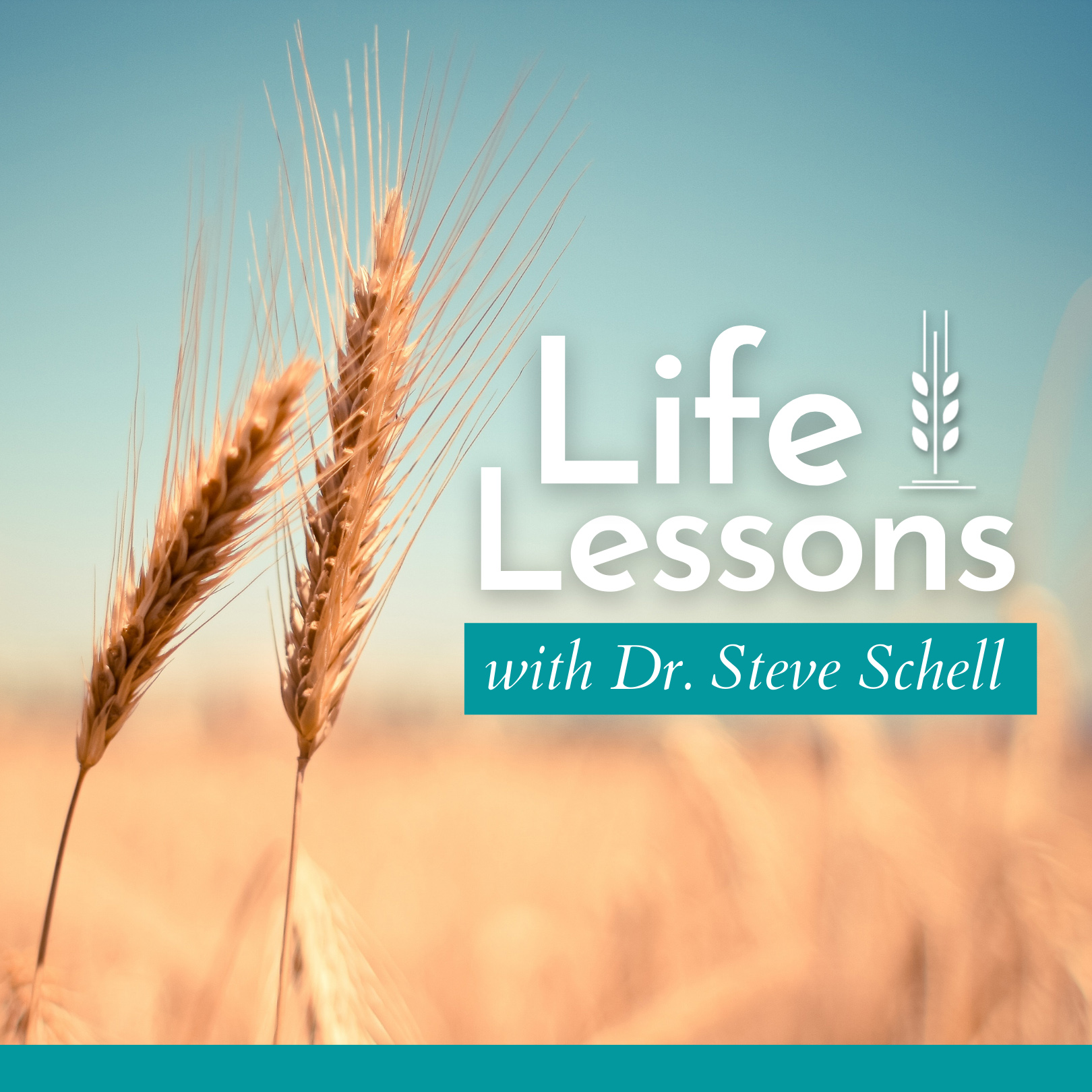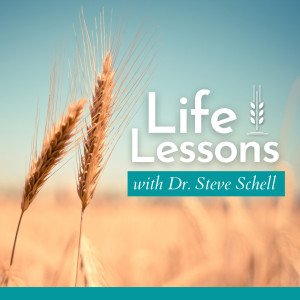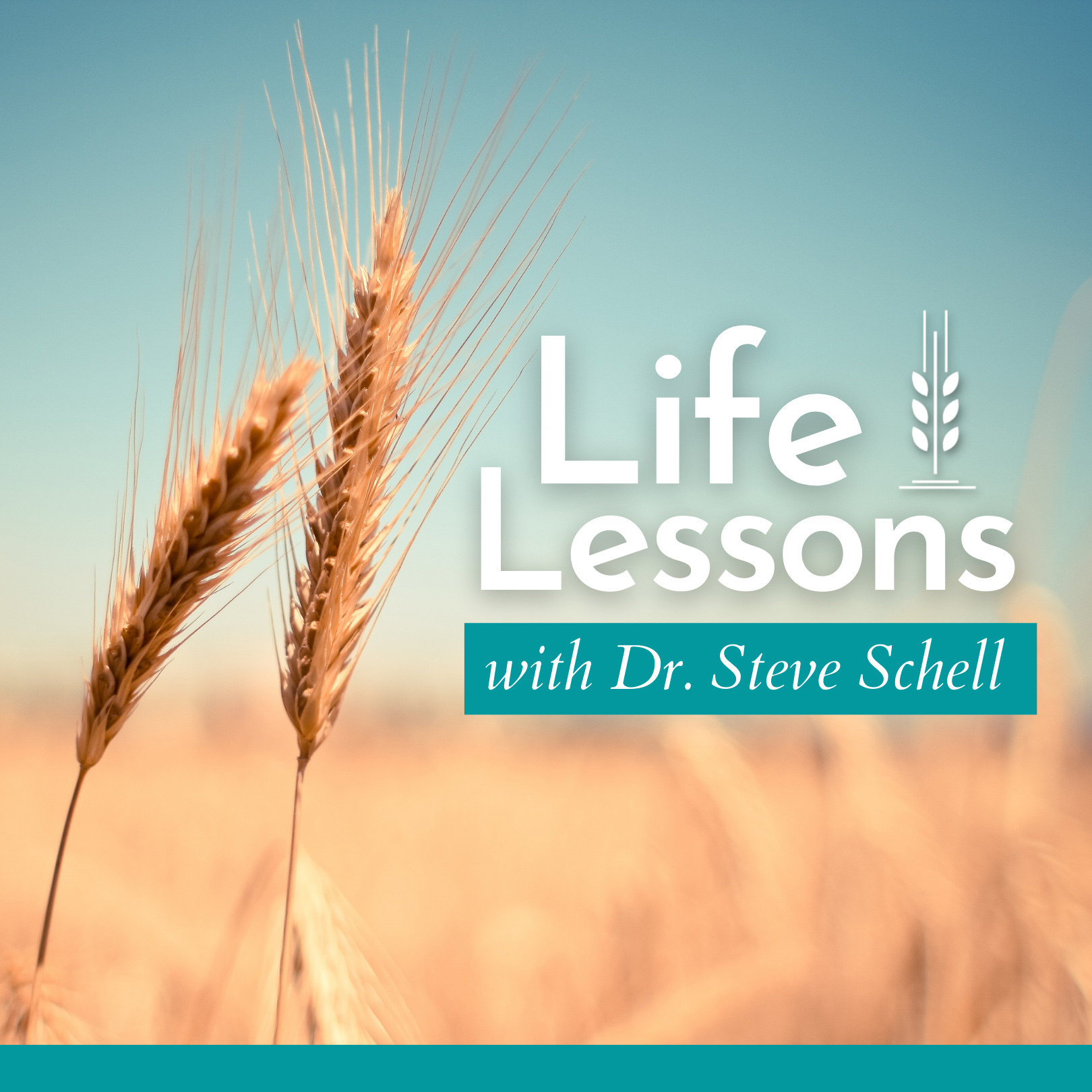
148.8K
Downloads
502
Episodes
Pastor Steve Schell comprehensively teaches through entire books of the Bible pulling out the deep, eternal truths in each section of Scripture without skipping over challenging passages. These sermons will help foster true discipleship for the committed Christian, both young and old.
Pastor Steve Schell comprehensively teaches through entire books of the Bible pulling out the deep, eternal truths in each section of Scripture without skipping over challenging passages. These sermons will help foster true discipleship for the committed Christian, both young and old.
Episodes

Thursday Jan 12, 2023
8 - Dealing with Loss
Thursday Jan 12, 2023
Thursday Jan 12, 2023
The death of a relationship can bring on depression. Times when friendships and families are broken or loved ones die seriously affects us. Pastor Steve discusses this type of depression and teaches how to go to the Lord for comfort.

Monday Jan 09, 2023
7 - Steps to Take
Monday Jan 09, 2023
Monday Jan 09, 2023
Pastor Steve offers practical steps to help depression like worshipping often, watching nutrition and sleep, and quitting the masking of symptoms with caffeine, sugar and pain relievers.

Thursday Jan 05, 2023
6 - Soul Ties
Thursday Jan 05, 2023
Thursday Jan 05, 2023
A lot of healing from depression comes from healing in the soul. Pastor Steve discusses soul ties, a term that describes an inappropriate bond to another person at the emotional, psychological level.

Monday Jan 02, 2023
5 - Caring For Yourself
Monday Jan 02, 2023
Monday Jan 02, 2023
There is a complexity to someone being healed of depression. And all the problems with depression are not spiritually based. Since a person is made up of body, soul and spirit, the solution can be a lot of different things. Pastor Steve explains some different ways the Lord has directed people to deal with depression and gives some very practical ways to help their depression lift.

Thursday Dec 29, 2022
3 - Expectations
Thursday Dec 29, 2022
Thursday Dec 29, 2022
Until the soul is healed, until the issues are attended to, a depressed person is still prone to depression. Pastor Steve shares his own experience with depression and how God healed him, and explains that God can indeed heal a person of depression.

Monday Dec 26, 2022
2 - An Overview
Monday Dec 26, 2022
Monday Dec 26, 2022
In addition to sharing his own experience with depression, in this series Pastor Steve offers some godly counsel and practical advice on understanding and overcoming depression.

Thursday Dec 22, 2022
1 - Four Square Convention
Thursday Dec 22, 2022
Thursday Dec 22, 2022
In addition to sharing his own experience with depression, in this series Pastor Steve offers some godly counsel and practical advice on understanding and overcoming depression.

Monday Dec 19, 2022
113 - The Coming Kingdom
Monday Dec 19, 2022
Monday Dec 19, 2022
Over and over again the Bible presents us with snapshots of the world as it will look when the Messiah comes to establish the kingdom of God on earth. But until then, the world we live in is a badly damaged version of the one in which God intended us to live, but it has become so familiar to us that we forget it isn't normal. In fact, compared to what God originally designed, it's very subnormal. And we humans aren't functioning anywhere near the capacity God intended for us. Everything and everybody is broken and sin-filled, and the cause of all this breakdown is not a mystery. God gave us enough freedom to rebel against Him, and that rebellion affected everything. But, as we will soon see, God will not allow this broken situation to continue forever. He always brings things back to His original plan. At an appointed time that only He knows, He will send His Messiah to rule the earth.

Thursday Dec 15, 2022
112 - Watching and Waiting
Thursday Dec 15, 2022
Thursday Dec 15, 2022
I’ve lived through seasons in which people were absolutely sure that Jesus was coming back any day. It was very exciting and, for some, particularly the young, very disturbing. Any thought of planning for the future went out the window because, after all, what was the use? The end of history, as we knew it, was at hand. It stirred evangelism and put the fear of God in some whose moral life had declined. No one wanted to be caught in a bad situation when Jesus returned.
I’ve also lived through seasons in which believers were not confident that Jesus was going to return soon. We watched the news headlines for signs to determine where we were in God’s prophetic timetable, and it seemed that most of the signs we saw were bad. The world seemed to be headed into its “last days” and we tried to decipher who the antichrist was. So much debate arose over the interpretation of certain passages of Scripture that many people were left feeling unsure of where we were in God’s plan, and that ambiguity seemed to reduce the fear of God in some. Jesus’ coming felt too distant to worry about.
It seems that we vacillate. Sometimes we’re waiting for Him to arrive at any moment, and sometimes we’re watching for prophetic signs and don’t expect Him in our lifetime. And the uncertainty of it all makes us want to ask: Does it really matter? Why don’t we simply leave that topic to the Bible scholars and trust that Jesus will come when He wants to? But it does matter. As we’ll see today the Lord wants us to live with an attitude of expectation as well as an attitude of endurance. You and I need the hope of Jesus’ soon return burning in our hearts. We need to feel the shortness of time. We need to be driven by an urgency that we must do what we can to serve Him while we can. Yet that attitude of high expectation must be tempered with a patient confidence that God is in control of the seasons of human history, and that His prophets have told us this and shown us what to watch for as the end draws near. Too much expectation that His return is immediate and we tend to stop preparing and wait. Too much certainty of where we are on the prophetic timetable and we grow complacent assuming we have lots of time to get it right, and we’ll die of old age before He comes.
The final conversation John records in his gospel is between Jesus and Peter. It contains both an assurance that Peter will live long enough to grow old, and a suggestion that Jesus might return during John’s lifetime. Peter is commanded to pastor Jesus’ followers and then told that when he is old he will be martyred. Yet when Peter asks what will happen to John, Jesus replies that John might not die before He returns to set up His kingdom. Both of the attitudes that we’ve just discussed were present in that conversation. Peter is given a prophetic word that Jesus won’t return during his lifetime, but then Jesus implies that He might return during John’s lifetime. And I don’t think that’s an accident. I think Jesus intended to teach both attitudes. He wanted Peter to prepare himself for a lifetime of faithfulness, and He also wanted him to live as if Jesus was coming very soon.
There are two ways of living out our faith: one is to prepare ourselves spiritually, so we can be faithful for a lifetime, and the other is to wait expectantly for Jesus’ soon return. Those two attitudes seem at odds with one another. You would think that a person would have to choose between them, but in that final conversation by the lake Jesus deliberately left the disciples with both attitudes. He wanted them to keep waiting and watching. He was preparing their hearts to expect and endure, because He might come at midnight and He might delay until a future generation. What we learn today from that dialogue between Jesus and Peter is that we are not to do one and ignore the other. We’re to do both, until we see Him face to face.

Monday Dec 12, 2022
111 - Is God Fair
Monday Dec 12, 2022
Monday Dec 12, 2022
No two people are alike. God designed us that way. He loves variety. There aren’t two snowflakes, or blades of grass, or grains of sand that are alike. No two people have the same fingerprints, let alone the same personality. Everything about us is different, including the path He has planned for our lives. But those differences have nothing to do with favoritism. Everything God does, which is not the same as everything that happens, is just and fair, and flows out of His perfect love. He has designed a different plan for each person’s life, not because He loves one and not the other, but because He understands the unique way He formed each person to serve Him. So those who compare themselves to someone else, and make judgments about God based on the differences they see, will always be misled. They will conclude that God is unfair.
It’s surprising that John, at the very end of his gospel, would give us such deep insight into Peter’s heart. Clearly, there were lessons in the way Jesus ministered to Peter that John wants us to learn. First, he let us listen as Jesus removed the shame that had gripped Peter as a result of his three denials in the high priest’s courtyard (vs 15-17). And now, in the verses we’re studying today, he lets us listen to the conversation that took place when Jesus told Peter how he would die. We hear the prophecy, and then we watch Peter struggle to accept it. What Jesus said frightened him and, I think, he reacted by becoming defensive. He assumed that the martyrdom Jesus foretold was a form of punishment, that what was being asked of him was unfair, that he was going to be subjected to a level of suffering that the others, especially John, were not. It appears that Peter worried that Jesus loved John more than He loved him. So he asked Jesus how John would die, not out of innocent curiosity but because he wondered if Jesus was being fair. It’s no surprise then that Jesus didn’t answer that question. Instead He spoke to the suspicion that caused the question. Basically, He asked Peter, “Don’t you trust Me?”, because if Peter did trust Jesus, then he needed to stop comparing himself to John and let his Lord lead him down the path that had been prepared for him. And if you and I trust Him, we will too.
